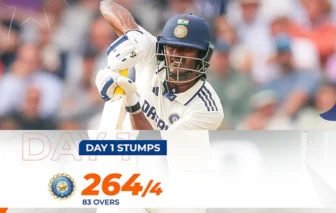ICC Introduces Major Rule Changes for ODIs and Tests

The International Cricket Council (ICC) has announced significant changes to the playing conditions for One Day Internationals (ODIs) and Test matches, in a move aimed at enhancing game balance and player safety. The new rules will come into effect this month.
Beginning July 2, ODI matches will no longer use two new balls for the entire duration of the innings. Instead, two balls will be in use only up to the 34th over. From the 35th over until the end of the innings, only a single ball will be used. The decision marks a departure from the two-ball format that had been standard in ODIs for over a decade.
Also Read:
The adjustment aims to address concerns from players and analysts regarding the reduced impact of spin bowlers and the limited reverse swing opportunities due to the consistent introduction of newer balls. The ICC believes the revised rule will offer bowlers, particularly spinners and those skilled in reverse swing, a greater role in the latter stages of ODI innings.
In Test cricket, the ICC has introduced mandatory concussion substitute nominations. Effective from June 17, teams are now required to declare specific substitute players with defined playing roles—such as batter, fast bowler, spinner, or wicketkeeper—before the start of each match. This move is intended to streamline concussion management procedures and ensure fair play when replacements are needed mid-match.
The new concussion policy formalizes a practice that has been in limited use since the ICC first permitted concussion substitutes in 2019. The detailed pre-match declaration ensures greater transparency and adherence to match conditions in the event of injuries.
In a related development that could reshape the traditional format of the game, the ICC is reportedly considering a shift to four-day Test matches in the near future. While no official implementation date has been announced, internal discussions within the cricketing body are said to be gaining momentum.
The idea of restricting Tests to four days has been met with mixed reactions from players and cricket boards. Proponents argue it could help reduce scheduling congestion and lower operational costs, while traditionalists warn it may compromise the strategic depth and historical significance of the five-day format.
The ICC has yet to make a final decision, but officials confirmed that the proposal remains under active review and could be trialed in select series depending on stakeholder consensus.
With these rule changes and potential format shifts, the ICC is signaling a more dynamic and adaptable approach to international cricket—one that balances tradition with the evolving demands of the modern game.
Read all the Breaking News Live on pakistantimes.com and Get Latest English News & Updates from Pakistan Times. Follow us on Whatsapp channel for more.








